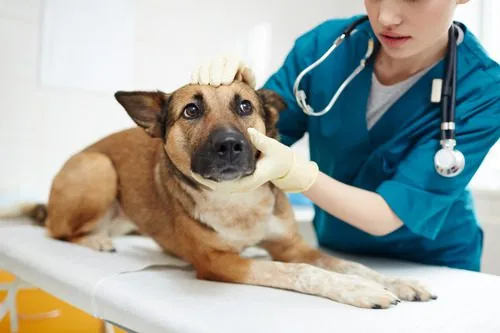Is Your Dog at Risk for Leptospirosis? Know the Signs and How to Protect Your Pet
Leptospirosis in dogs is a concern that demands our attention. This bacterial disease affects not only dogs but can also pose a risk to humans. Understanding the impact of leptospirosis on your dog’s health is crucial for every pet owner. In this blog, we’ll explore what leptospirosis is, its signs and symptoms, and most importantly, how you can protect your beloved pet from this disease. We aim to equip you with the knowledge to prevent leptospirosis in dogs, ensuring your pet remains happy and healthy.

Impact of Leptospirosis on a Dog’s Health
Leptospirosis is caused by spiral-shaped bacteria that can severely affect your dog’s kidneys, liver, and even its ability to clot blood. When untreated, it can lead to kidney failure, liver failure, and even death. Dogs can contract leptospirosis through direct contact with infected urine, contaminated water, soil, or through the bite of an infected animal. The disease is a stealthy attacker; its impact on your dog’s health can be sudden and severe.
Signs and Symptoms of Leptospirosis in Dogs
It’s vital for pet owners to recognize the early signs of leptospirosis in dogs. Symptoms can vary but often include:
- Fever and shivering
- Increased thirst and urination, which may indicate kidney involvement
- Jaundice (a yellowish tinge visible in the skin, whites of the eyes, and mucous membranes), suggesting liver damage
- Lethargy and reluctance to move due to muscle pain
- Vomiting or diarrhea
- Coughing and difficulty breathing if the lungs are affected
If you notice any of these symptoms, it’s important to contact Riverstone Animal Hospital immediately.
The Importance of Regular Veterinary Care
Regular check-ups at Riverstone Animal Hospital can play a significant role in preventing leptospirosis and other diseases. During these visits, your vet can check for any signs of the disease and recommend preventive measures. Early detection and treatment are key to a successful recovery.
Diagnosing and Treating Leptospirosis
If leptospirosis is suspected, your vet will conduct blood and urine tests to confirm the diagnosis. Treatment typically involves antibiotics to fight the bacteria and supportive care to manage symptoms. In severe cases, hospitalization may be required to provide intensive care, such as fluid therapy and medications to support liver and kidney function.
Preventing Leptospirosis in Dogs
Prevention is always better than cure. You can reduce the risk of infection by taking the following precautions:
- One of the most effective ways to prevent leptospirosis is vaccination. Discuss with your vet at Riverstone Animal Hospital about getting your dog vaccinated against this disease.
- Keep your dog away from standing water or areas known to be contaminated.
- Since rodents can carry the bacteria, it’s important to control rodent populations around your home.
- Ensure your pet’s environment is clean and free from urine from other animals.
What to Do If You Suspect Your Dog Has Leptospirosis
Leptospirosis in dogs is a serious health concern that can have devastating effects. However, with the right knowledge and preventative measures, you can protect your dog from this disease. If you think your dog may have leptospirosis, it’s essential to act quickly. Contact Riverstone Animal Hospital at (770) 479-7141 or book an appointment online. Avoid direct contact with your dog’s urine and take precautions to prevent the disease from spreading to other pets or family members.
